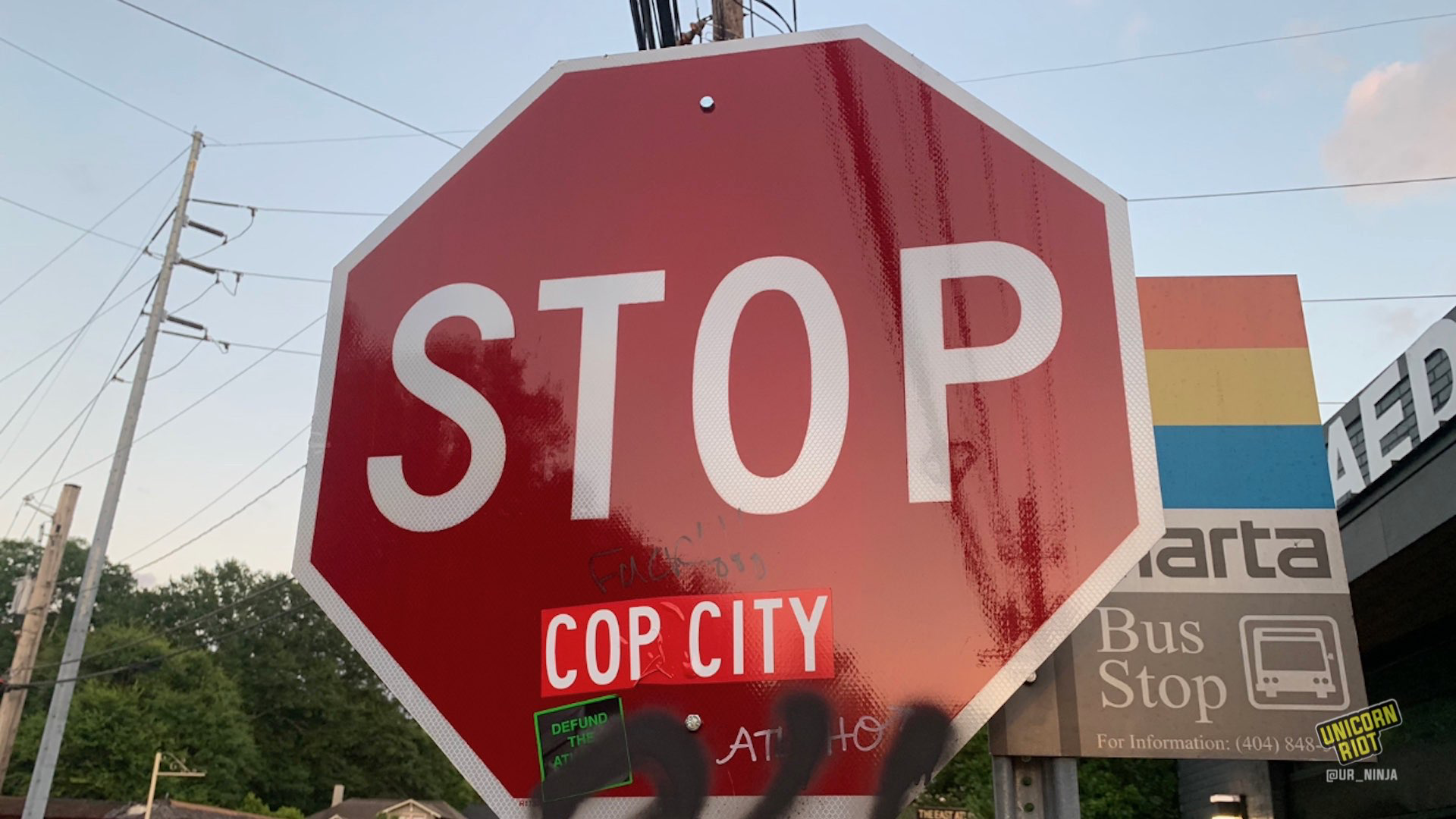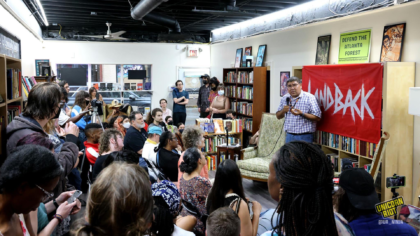‘Stop Cop City’ Week of Action Day 3: Bike Ride/Rally, Signature Gathering, Discussing Movement History
Atlanta, GA – The sixth “Week of Action” to oppose the Atlanta Police Foundation’s urban warfare training center continued for its third day on Monday.
Free community meals, plant giveaways and a wheatpasting workshop were held in Brownwood Park in southeast Atlanta, which has served as the hub for many of the ‘Stop Cop City’ movement’s planned activities for the week.
At around 6 p.m., a ‘slow roll’ bike ride in memory of slain forest defender Manuel ‘Tortuguita’ Terán assembled at Piedmont Park before taking to the Beltline cycling trail.
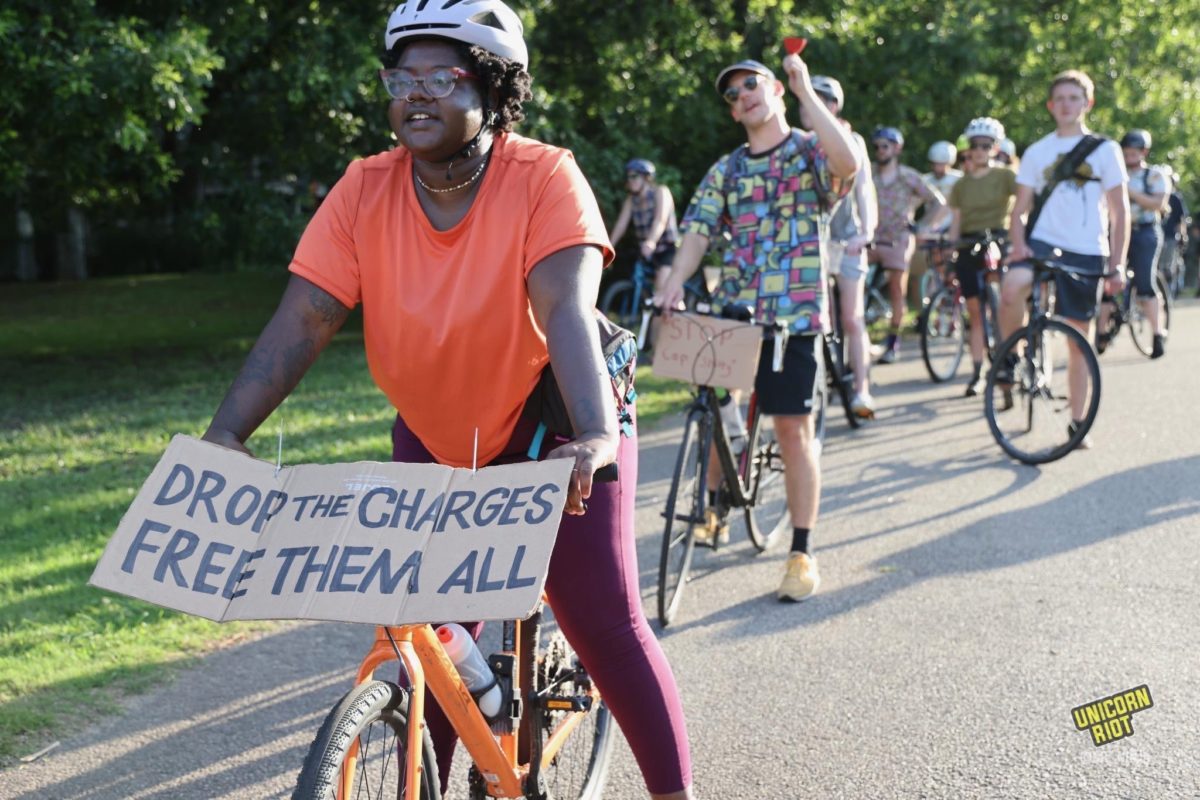
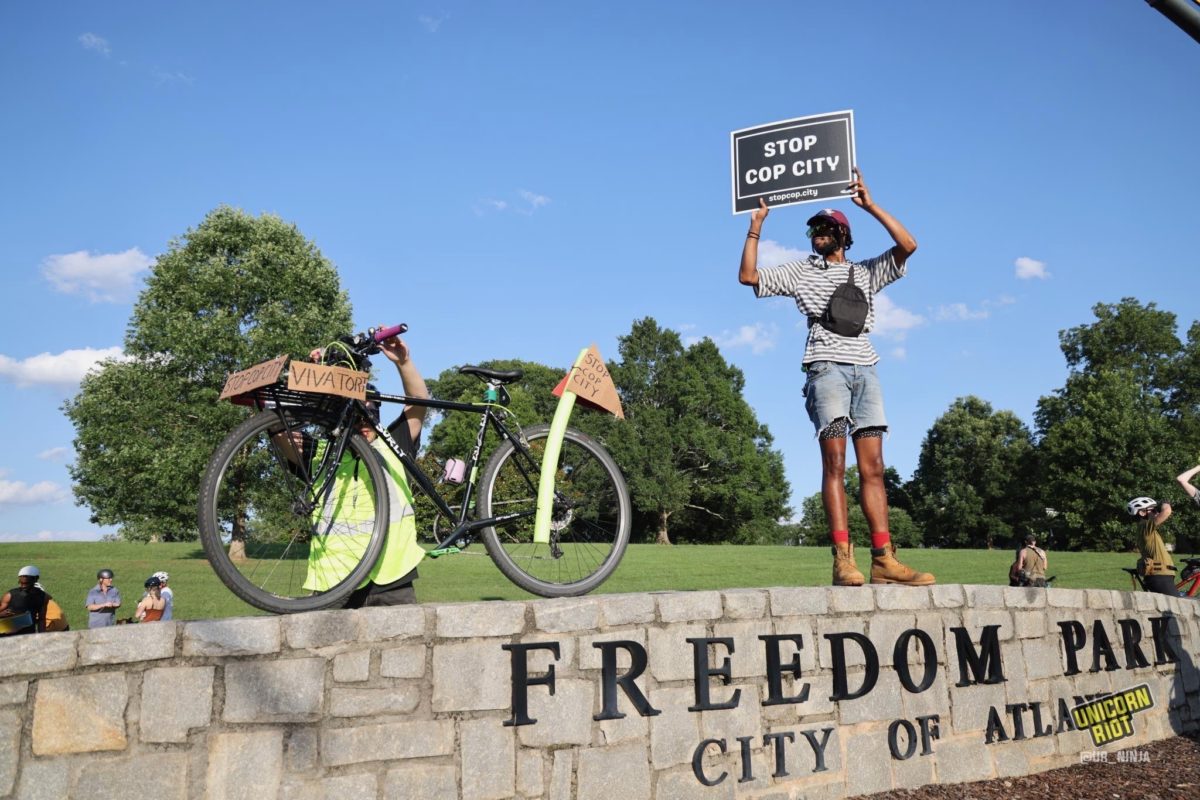
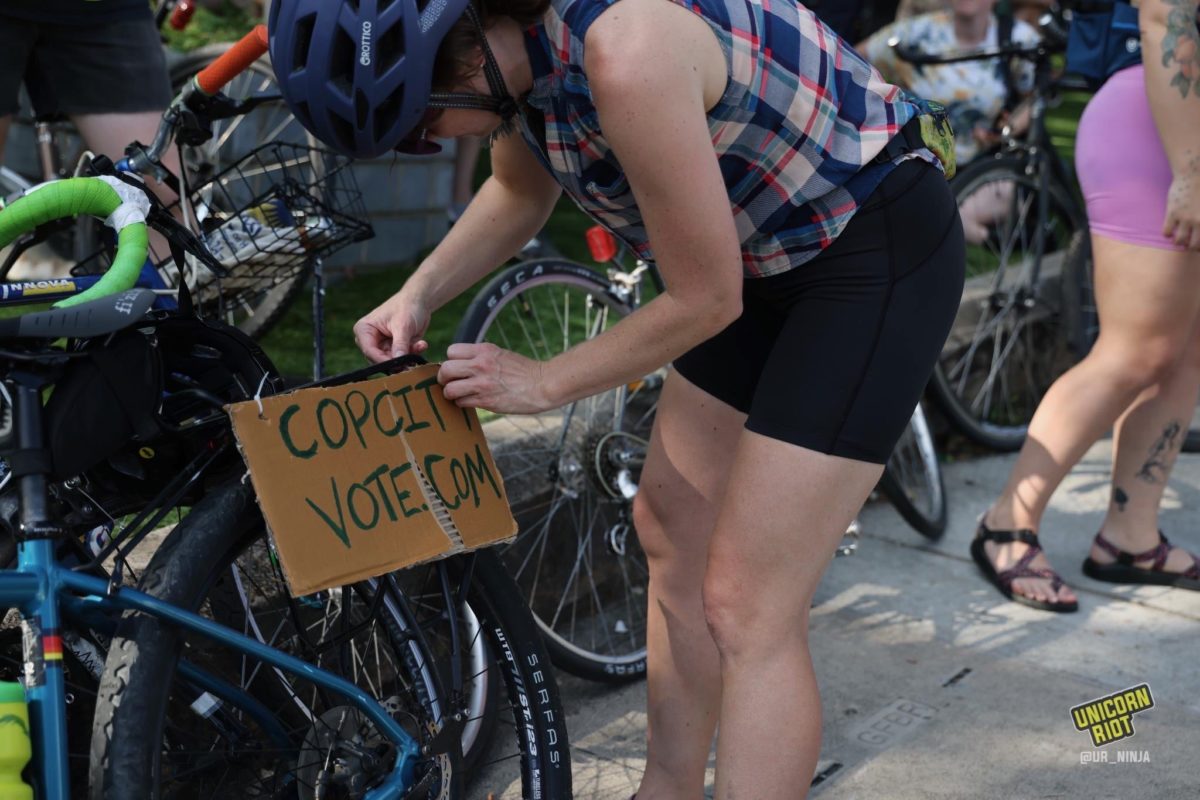
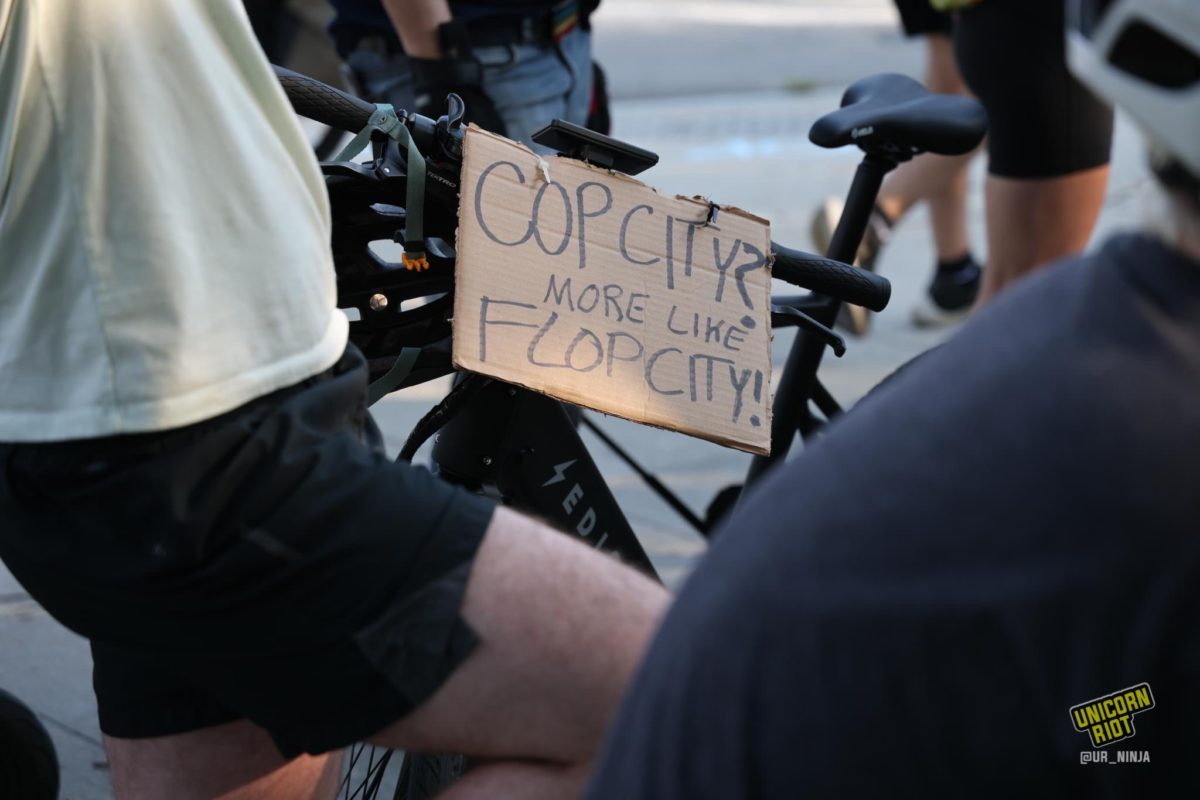
Belkis Terán, Tortuguita’s mother, thanked protesters for carrying on her child’s memory before the crowd rode to Freedom Park for a short rally. There, people chanted and gathered signatures for the referendum effort to put ‘Cop City’ up to a vote.
Meanwhile back in Brownwood Park, over 100 people gathered for a discussion entitled “Now That’s What I Call Movement”, facilitated by Unity and Struggle, an anti-state communist group which describes itself as working to “learn from struggles as we participate in them.”
A panel of speakers involved in Atlanta social movements shared their experience as organizers and activists in Atlanta from 2010 to 2019 as part of a wider “decades-long history of radical organizing [in Atlanta] that has made something like ‘Stop Cop City’ possible.” (An upcoming part 2 to the discussion on Wednesday will discuss the 2020 George Floyd uprisings; Unity and Struggle recently released a text called ‘Big Brick Energy: A multi-city study of the 2020 George Floyd uprising,’ copies of which were distributed in Brownwood Park on Monday evening.)
Stories and lessons were shared from historic moments like the movement to stop the September 21, 2011 execution of Troy Davis, which led directly to Atlanta’s local manifestation of the Occupy Wall Street movement. Movement participants recounted how the defining features of Occupy Atlanta – such as experiencing direct democracy by holding general assemblies and learning class analysis while resisting foreclosures and gentrification – fed into later movement history moments like the Ferguson movement of 2014 and 2016 protests after the police shootings of Philando Castile and Alton Sterling. Speakers also stressed the particular local significance of the 2015 shooting of Anthony Hill by DeKalb County Police.
Wider lessons discussed included how those involved in social movements can use “lull moments” to “rethink how we rebuild…before flash points happen” and to better understand how dynamics like “ambulance chasing” can contribute to burnout. They also noted the difficulty in cultivating “long-form political education” in the era of 60-second social media videos and the deluge of online videos showing police shootings in the post-Ferguson era: “If you’re constantly attuned to ‘What’s the next action? Who’s dead now?,’ you’re not gonna be able to do the work.”
Follow us on X (aka Twitter), Facebook, YouTube, Vimeo, Instagram, Mastodon, Threads, BlueSky and Patreon.
For Unicorn Riot's coverage on the movement to defend the Atlanta Forest click on the image below.
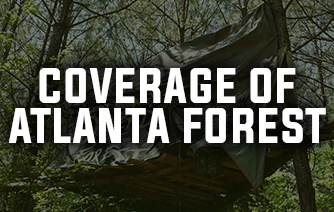
Please consider a tax-deductible donation to help sustain our horizontally-organized, non-profit media organization:

